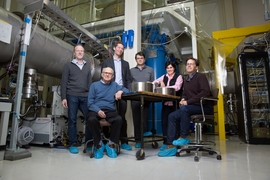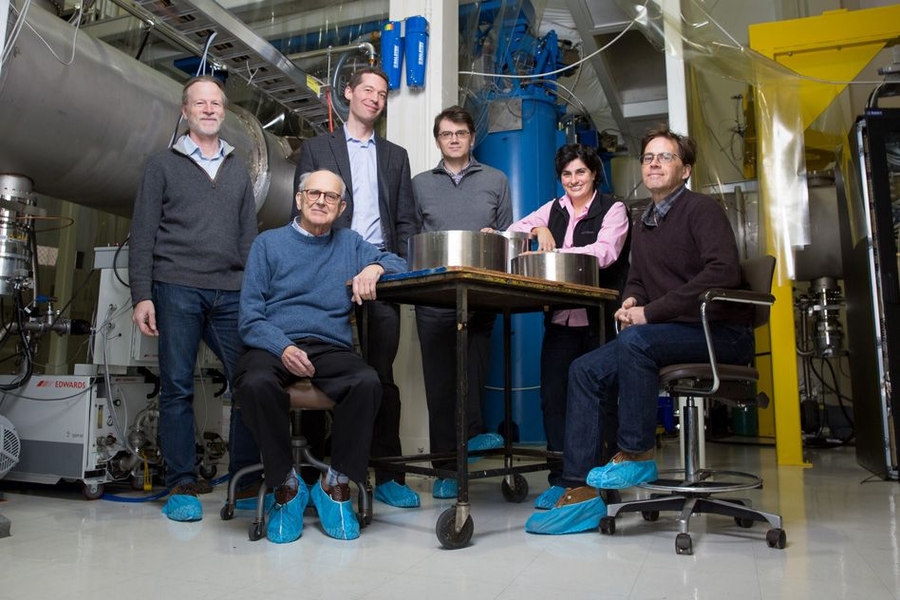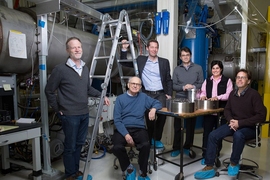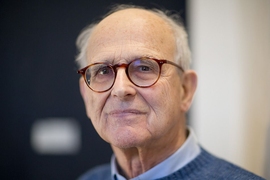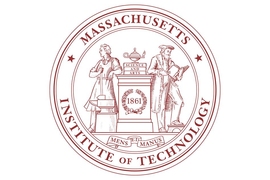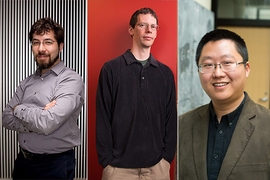The scientists and engineers of the LIGO Scientific Collaboration, who detected gravitational waves and reported their discovery in February, have been awarded a $3 million Special Breakthrough Prize in Fundamental Physics.
The prize will be shared between two groups of laureates: the three founders of the Laser Interferometer Gravitational-Wave Observatory (LIGO), who will each equally share $1 million; and 1,012 contributors to the experiment, who will each equally share $2 million. The three founders are Rainer Weiss, emeritus professor of physics at MIT; Kip Thorne, Caltech’s Richard P. Feynman Professor of Theoretical Physics, emeritus; and Ronald Drever, emeritus professor of physics at Caltech.
The discovery, announced on Feb. 11, again confirmed Einstein’s theory of general relativity and opened up a new way in which to view the universe. According to the researchers’ calculations, the gravitational wave they detected was the product of a collision between two massive black holes, 1.3 billion light years away.
Founded by a group of Silicon Valley entrepreneurs, the Breakthrough Prizes recognize the world’s top scientists in life sciences, fundamental physics, and mathematics. A Special Breakthrough Prize can be awarded by the selection committee any time. The Breakthrough Prize in Fundamental Physics and the Special Breakthrough Prize in Fundamental Physics are funded by a grant from the Milner Global Foundation.
“I am extremely pleased that the organizers of the Breakthrough prize have decided to honor the entire team of people that made the discovery,” Weiss told The Guardian.
